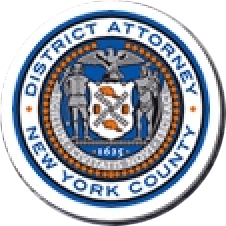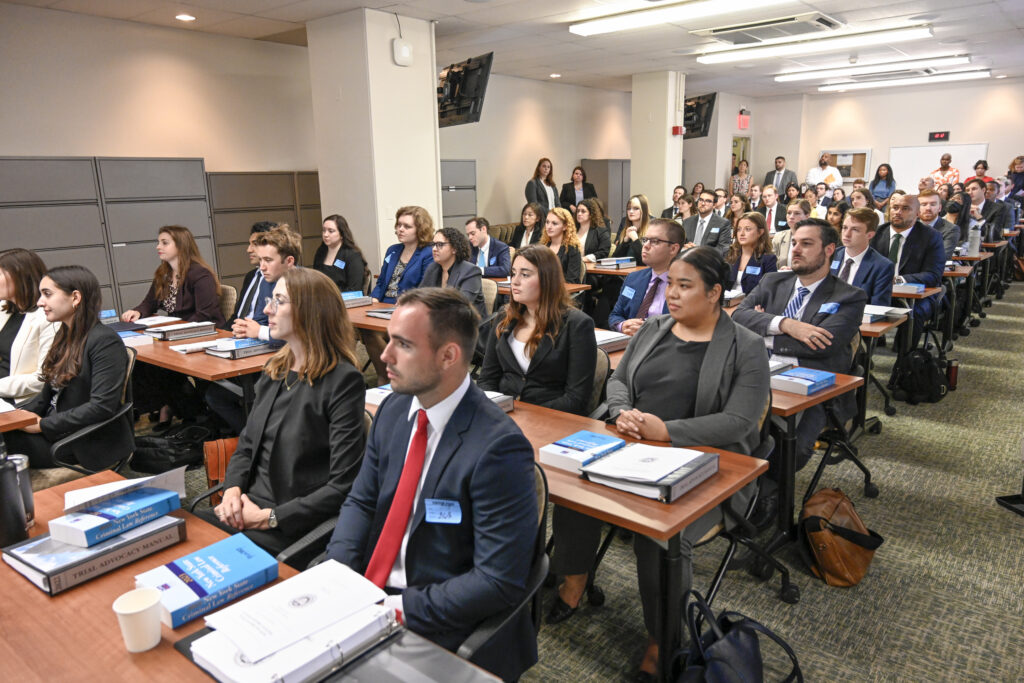The New York County District Attorney’s Office recognizes that legal training is essential to a prosecutor’s development. We have therefore established an extensive and in-depth training program that begins when Assistant District Attorneys first enter the office, and extends throughout their professional lives.
Training begins with orientation, where arriving ADAs are instructed on the fundamentals of prosecution laws and procedures, criminal court practice, and ethical obligations. As they progress in their careers, ADAs receive training in trial advocacy, grand jury procedures, supreme court practice, and homicide prosecution. Additionally, the office offers extensive ongoing training programs that allow ADAs to remain abreast of changing legal matters and to develop expertise in particular areas of law. The Office is an accredited Continuing Legal Education provider.
Training extends beyond legal skills and case analysis to professional development. ADAs promoted to supervisory positions receive training in making the transition to supervisor, time management and leadership skills.
The office also recognizes the importance of reinforcing the high professional and ethical standards that are essential to ensuring that justice is done is every single case. To that end, ethical considerations pervade every aspect of legal training.
Besides formal training, ADAs receive informal mentoring from their supervisors and more experienced peers. The office has a cadre of highly experienced trial, appellate, and investigative attorneys who are strongly committed to mentoring the attorneys in the office.
- ORIENTATION AND CRIMINAL COURT TRAINING
- GRAND JURY & SUPREME COURT TRAINING
- TRIAL ADVOCACY PROGRAM
- HOMICIDE TRAINING
- ONGOING TRAINING
- LEGAL WRITING PROGRAM
Orientation and Criminal Court training provide new ADAs with a framework of case law and skills to build on throughout their careers. The program, which takes place during the first six weeks in the Office and beyond, includes lectures, workshops, demonstrations, and tours, and covers such topics as New York Criminal Procedure law, New York Penal law, search and seizure law, suppression law, case assessment, drafting complaints, interviewing witnesses, arraignments, hearings, and ethical considerations for prosecutors. During the course of the program new ADAs receive further instruction on how to handle cases involving sex crimes, domestic violence, child abuse, official corruption, driving while intoxicated, identity theft, narcotics, and bias crimes.



